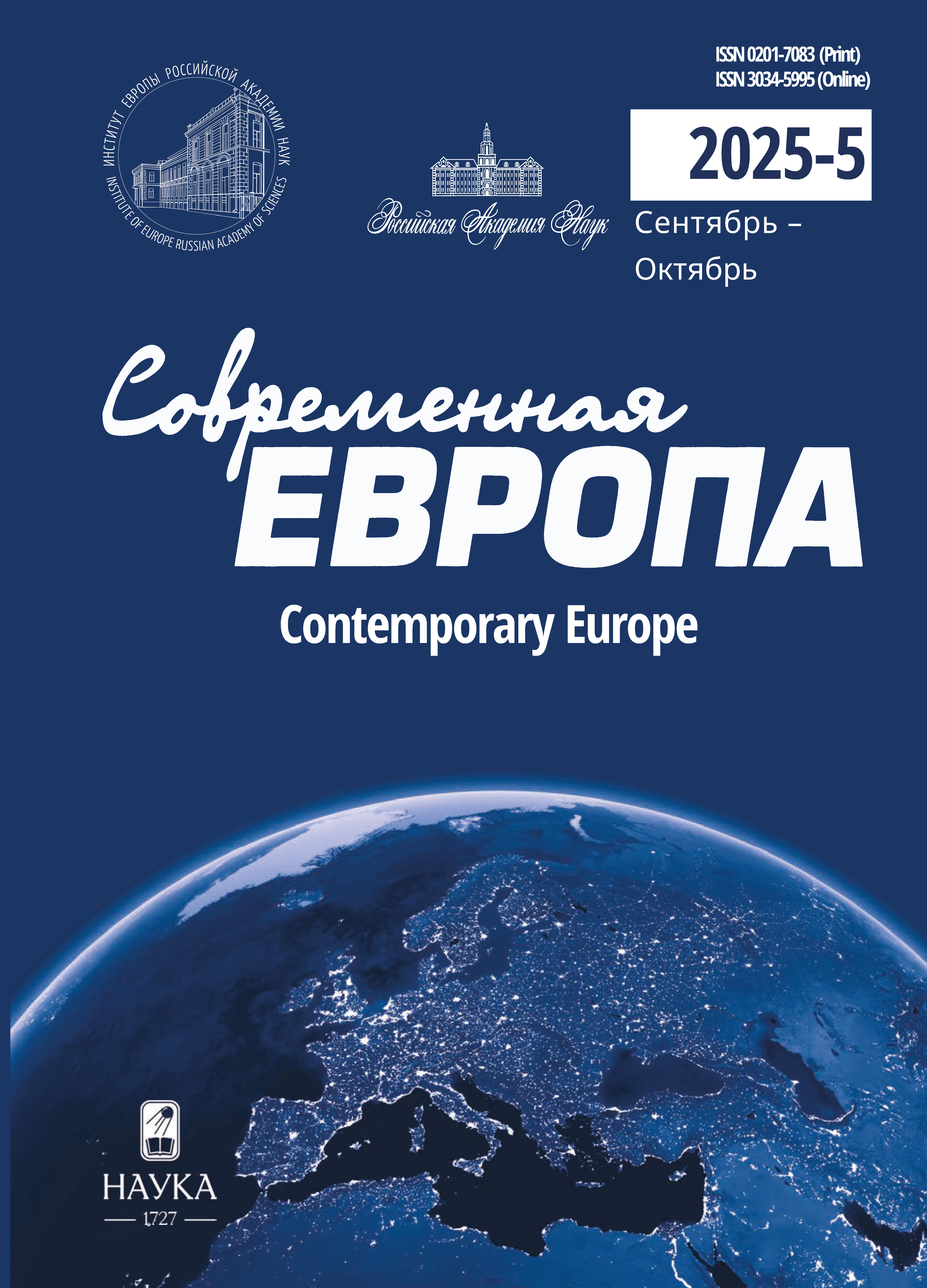Modernisation of crisis response at global and regional levels
- Authors: Shcherbak I.N.1
-
Affiliations:
- Institute of Europe Russian Academy of Sciences
- Issue: No 2 (116) (2023)
- Pages: 59-72
- Section: Articles
- URL: https://rjsvd.com/0201-7083/article/view/652256
- DOI: https://doi.org/10.31857/S0201708323020055
- EDN: https://elibrary.ru/OUGBWA
- ID: 652256
Cite item
Abstract
The author examines the peacekeeping practice in terms of new instruments of crisis response (special political and stabilization missions and operations) used by the UN, the EU and OAU. The study focuses on the problems connected with the extended use of the UN and EU's stabilization operations aimed at combating terrorism, assuring security in the crisis regions, as well as with the provision of assistance to the host countries. It is revealed that political and stabilization missions could become prospective instruments of crisis response due to their maximum adaptation to modern challenges of global and regional security and stability. High level of coordination among UN, EU and other regional organizations in planning and implementation of these operations is a necessary precondition for effectiveness of these missions and operations. Creation of a global platform for joint operative response to extraordinary and complex crisis situations comprising the UN, EU, OSCE G20 and other regional organizations could be a major step in this respect. The platform could be also used for the development of confidence-building measures providing a high degree of transparency in military activities of different states and regional organizations; for prevention of conflicts and reaching a diplomatic solution. Establishing regional platforms for regulation of local conflicts in the regions with a high probability of crisis situations like the Middle East, the Persian Gulf, Africa, Afghanistan and the Central Asia, the Far East could also contribute to global security and stability.
About the authors
Igor Nikolaevich Shcherbak
Institute of Europe Russian Academy of Sciences
Email: inshcherbak@gmail.com
Moscow, Russia
References
- Coleman K.P., Williams P.D. (2021) Peace operations are what states make of them: Why future evolution is more likely than extinction. Contemporary Security Policy. Vol. 42. Issue 2. P. 241-255. DOI: https://doi.org/10.1080/13523260.2021.1882802.
- Curran D., Hunt C.T. (2020) Stabilization at the expense of peacebuilding in UN peacekeeping operations. More than just a phase? Global Governance: A Review of Multilateralism and International Organizations. Vol. 26. Issue 1. DOI: https://doi.org/10.1163/19426720-02601001.
- Day A. (2019) UN Transitions, Improving Security Council Practice in Mission Settings. United Nations University, Centre for Policy Research, New York, USA. 125 p.
- De Coning C., Aoi Ch., Karlsrud J. (ed.) (2017) UN Peacekeeping doctrine in a New Era. Routledge. 364 p.
- Hegre H., Hutman L., Nygard H.M. (2019) Evaluating the Conflict - Reducing Effect of the UN Peacekeeping. The Journal of Politics. Vol. 81. No. 1. P. 215-232. DOI: https://doi.org/10.1086/700203.
- Hirblinger A.T. (2020) Digital inclusion in peacemaking: a strategic perspective. CCDP Working Paper No. 14. Graduate Institute of International and Development Studies, Centre on Conflict, Development and Peacebuilding, Geneva, Switzerland. URL: https://repository.graduateinstitute.ch/record/298396?_ga=2.204266646.741269618.1678654782-1299010772.1678654782
- International crisis group (2020) The Price of Peace: Securing UN Financing for AU Peace Operations. Africa Report No. 286. 31.01. Brussels, Belgium. 32 p. URL: https://icg-prod.s3.amazonaws.com/286-price-of-peace-un-au-financing_0.pdf (accessed: 10.09.2022)
- International crisis group (2023) Averting a New War between Armenia and Azerbaijan. Europe Report No. 266. 30.01. Brussels, Belgium. 26 p. URL: https://icg-prod.s3.amazonaws.com/s3fs-public/2023-01/266-averting-war-armenia-and-azerbaijan_0.pdf (accessed: 30.01.2023)
- Kenkel K.M., Foley C. (2021) Responding to the crisis in the United Nations peace operations. Contemporary Security Policy, Vol. 42. Issue 2. P. 189-196. DOI: https://doi.org/10.1080/13523260.2021.1899543.
- Martin I. (2010) All Peace Operations are Political: a Case for Designer Missions and the Next UN Reform. Review of Political Missions 2010. Center on International Cooperation, N.Y., USA. P. 8-14. URL: https://peaceoperationsreview.org/wp-content/uploads/2015/04/2010_rpm_all_peace_political_martin.pdf (accessed: 06.07.2022)
- Osland K.M., Mateja P. (2021) UN peace operations in a multipolar order. Contemporary Security Policy. Vol. 42. Issue 2. P. 197-210. DOI: https://doi.org/10.1080/13523260.2021.1898166.
- Paladini L. (2009) The European's Peace Mission in the United Nations Collective Security System. European University Institute, Fiesole, Italy. 41 p. URL: https://cadmus.eui.eu/bitstream/handle/1814/13016/RSCAS_2009_71.pdf?sequence=2&isAllowed=y (accessed: 25.08.2022)
- Welter M., Varga A. (ed.) (2021) International Law and Peace Settlements. Cambridge University Press. 323 p. doi: 10.1017/9781108627856.
Supplementary files











